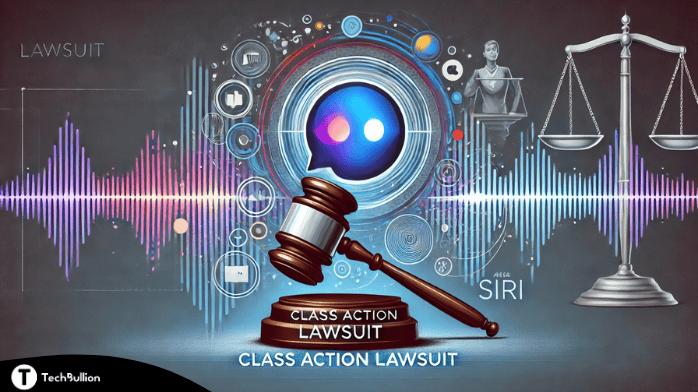Apple Siri Class Action Lawsuit: Concerns and Legal Challenges

In recent years, voice-activated assistants have become a cornerstone of modern technology, offering convenience and efficiency for millions of users. Among these, Apple Siri Class Action Lawsuit has gained a reputation for its advanced capabilities. However, Siri has not been without controversy. The focus has now shifted to class action lawsuits alleging privacy violations, with serious implications for Apple and its users. This article delves into the details of the Siri class action lawsuit, its origins, legal complexities, and potential consequences for the tech industry.
What is the Apple Siri Class Action Lawsuit?
The Siri class action lawsuit revolves around allegations that Apple’s voice assistant violated user privacy by recording and storing conversations without explicit consent. Plaintiffs claim that Siri activated inadvertently, capturing sensitive data that was subsequently analyzed or stored, breaching consumer trust and privacy laws.
This legal battle has gained momentum in courts across the U.S., with privacy advocates closely monitoring the proceedings. It highlights the broader tension between technological innovation and user privacy rights.
Key Allegations Against Apple
1. Unintended Activations
One of the central claims is that Siri frequently activates accidentally, even when users have not issued a voice command like “Hey Siri.” This phenomenon, known as “false triggers,” allegedly results in Siri recording private conversations without user consent.
2. Data Usage and Storage
The lawsuit accuses Apple of sending these unintended recordings to its servers for analysis, raising concerns about the potential misuse of personal information. Plaintiffs argue that this violates consumer expectations and Apple’s commitment to privacy.
3. Violation of Privacy Laws3
Apple is accused of breaching several privacy and consumer protection laws, including:
- The California Invasion of Privacy Act (CIPA): Prohibiting unauthorized recording of private conversations.
- The Wiretap Act: Preventing unauthorized interception of communications.
The Timeline of Events
2019: Initial Reports
Concerns about Siri’s privacy surfaced in 2019 when whistleblowers revealed that Apple contractors were analyzing Siri recordings for quality control. These recordings allegedly included sensitive conversations, such as medical discussions and private interactions.
2020: Class Action Lawsuits Begin
In response to public outcry, multiple class action lawsuits were filed against Apple. Plaintiffs claimed that Apple had violated their privacy by recording and analyzing Siri interactions without proper consent.
2023: Legal Developments
As of 2023, courts in the U.S. have consolidated several lawsuits into a larger class action, allowing plaintiffs to pursue claims collectively. This move has intensified scrutiny of Apple’s practices and legal defense.
Apple’s Response to the Allegations
Apple has consistently denied any wrongdoing, asserting that:
- User Privacy is a Priority: Apple emphasizes its commitment to privacy, highlighting that Siri data is anonymized and not tied to individual users.
- Transparency Measures: Following the controversy, Apple introduced changes to Siri’s design, including an opt-in feature for users to share voice recordings for improvement purposes.
- Technical Justifications: Apple argues that inadvertent activations are rare and that measures are in place to minimize such occurrences.
Despite these assurances, critics argue that the company must do more to safeguard user privacy.
Legal Implications of the Apple Siri Class Action Lawsuit
For Apple
If found liable, Apple could face:
- Financial Penalties: Potential damages in the millions or even billions of dollars.
- Reputational Damage: Eroding consumer trust in Apple’s privacy commitments.
- Operational Changes: Pressure to implement stricter privacy protocols and transparency measures.
For the Tech Industry
The lawsuit sets a precedent for how tech companies handle privacy issues related to voice assistants. It signals that consumers are increasingly willing to challenge perceived violations of their rights, encouraging greater accountability across the sector.
Broader Privacy Concerns Surrounding Voice Assistants
The Siri class action lawsuit is part of a broader conversation about privacy and voice assistants. Key concerns include:
- Always-On Devices
Voice assistants like Siri, Alexa, and Google Assistant are often “always listening” for wake words. This raises questions about the scope of their data collection and the potential for abuse. - Data Misuse and Security
Once voice data is collected, it becomes vulnerable to misuse, whether by companies, contractors, or hackers. Ensuring secure storage and usage is a growing challenge. - Regulatory Oversight
Governments worldwide are grappling with how to regulate voice assistants, balancing innovation with the need to protect user privacy.
Steps Apple Has Taken to Address Privacy Concerns
In response to criticism, Apple has introduced several measures to reassure users:
- Opt-In for Data Sharing
Users must now explicitly opt-in if they wish to allow Apple to use their recordings for quality control. - Local Processing
Apple processes as much Siri data as possible on-device, reducing the need to send information to remote servers. - Privacy Labels
The App Store now includes privacy labels that inform users about data collection practices, enhancing transparency.
While these measures are a step in the right direction, the ongoing lawsuit underscores the need for continual improvement.
Potential Outcomes of the Lawsuit
Settlement
Apple could choose to settle the lawsuit out of court, offering compensation to affected users while avoiding an admission of guilt.
Trial and Judgment
If the case proceeds to trial, a ruling against Apple could result in significant penalties and stricter regulatory scrutiny.
Industry-Wide Impact
The case’s outcome will likely influence how other tech companies manage user data, potentially leading to stricter privacy standards across the board.
Consumer Tips for Protecting Privacy with Siri
While the lawsuit plays out, users can take steps to safeguard their privacy when using Siri:
- Disable Siri on Lock Screen: Prevent Siri from activating accidentally by restricting access from the lock screen.
- Review Siri History: Regularly delete voice recordings stored by Apple through your device settings.
- Customize Settings: Opt out of data sharing and manage Siri’s permissions carefully.
- Use Alternative Solutions: Consider using other voice assistants or disabling always-on functionality if privacy is a major concern.
Conclusion: Apple Siri Class Action Lawsuit
The Apple Siri class action lawsuit highlights the evolving challenges of balancing technological advancement with user privacy. As the case unfolds, it serves as a crucial reminder for companies like Apple to prioritize transparency and accountability. For consumers, it underscores the importance of staying informed and proactive about digital privacy.
Whether the lawsuit results in sweeping changes or incremental improvements, its impact will undoubtedly shape the future of voice-activated technology and privacy standards. For Apple, Siri’s legal battles may be the push needed to align innovation with the trust of its users.



